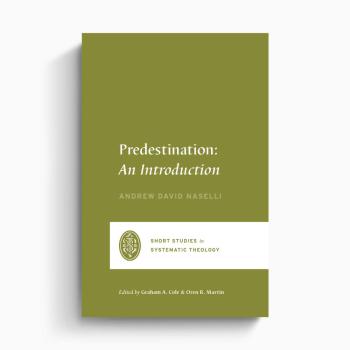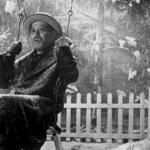Review of The Evangelical Heritage by Bernard Ramm
Bernard Ramm’s short book The Evangelical Heritage, traces the development of evangelical thought from the origins of Christianity to the present day. He reviews major theological developments and arguments in the history of Christianity and discusses what relevance they have for the evangelical today, what positions evangelical theology typically has taken on the big questions, and what Christian thinkers and thoughts have come to form our heritage.
Ramm’s writing is clear and to the point. His tone is that of a storyteller finding our strand in the grand tapestry of Christian history. He describes fairly, takes sides carefully, and backs up his judgements with reasoned argument stemming from clear criteria. But his use of history to sketch the evangelical identity is the best part of the book. By positioning the evangelical mindset in the history of Christianity he succeeds in portraying the contemporary evangelical not as a descendent of the Reformation, but of the Early Church. Evangelicals, he asserts, have crucial lessons to learn from and similarities to Christians in all previous eras: indeed, at one point he boldly claims, “An evangelical with an ahistorical faith is a superficial Christian.”
Underlying this approach is the conviction that our place in history is key element in who we are; understanding the narrative of where we came from is indispensable for self-knowledge – a good insight by itself. Ramm claims that an evangelical unschooled in Christian history will have a hard time really knowing what it means to be an evangelical and therefore unprepared to share the gospel.
In the first two chapters Ramm offers a quick synopsis of the first millennium and a half after Christ, positioning evangelicalism firmly with the Christians who accepted the council of Calcedon in 451 AD, as opposed to the non-Calcedonian churches who still exist in small numbers today in Syria, India, and Ethiopia, for example, and whose Christology is iffy. In 1054 the evangelical tradition sided with the Roman Catholic Church’s preference for intellectualism, as opposed to the Orthodox Church’s mysticism (here he commits the common error of calling it the ‘Eastern’ Orthodox Church, a name unfortunately enshrined in common parlance but with no grounding in the Orthodox Church’s own terminology). These sections are good starting materials for Christians unfamiliar with pre-Reformation Christian history, though lacking in some detail.
For the remainder of the book, Ramm discusses the Reformation; the era of evangelical Orthodoxy; the Enlightenment; Liberalism; Fundamentalism; and Neo-Orthodoxy, with a concluding chapter on the future of evangelical thought. Ramm does a good job stacking different thinkers up against each other and discussing where they agree and part, and discussing the particular characteristics of a movement (such as Liberalism) unique to itself.
Perhaps Ramm’s most valuable contribution for the contemporary American evangelical is distinguishing evangelicalism from Fundamentalism and from Liberalism alike. The latter two arose out of the Enlightenment’s challenge to supernatural religion. The Enlightenment mindset attacked the accuracy and authorship of the Bible, the possibility of supernatural acts occurring or of supernatural realities being knowable, and the authority of religion in man’s life generally. As a result, philosophy and science claimed to replace religious authority and standard parts of Christian thought fell away: original sin was jettisoned as endemic and destructive pessimism, truth was no longer the subject of known and fixed dogma but the goal of a never-ending (indeed, unendable) self-critical journey, and human sensibilities became the judge of Biblical content rather than the other way around.
Fundamentalism and Liberalism were two diametrically opposite responses to this attack. Fundamentalists retrenched, refused to concede the least point, and railed not just against the Enlightenment’s conclusions but also its methods and tools like literary criticism, scientific archeology, linguistics, and hagiography. Liberals (correctly) thought the new sciences were demonstrably accurate and reliable as tools of human inquiry, but they then gave away the heart and whole of the Christian religion in accepting the Enlightenment’s criticisms.
Liberals, following the example of Schleiermacher, substantially accommodate Christian theology to Enlightenment demands, and in the process change the theology beyond anything historically recognizable as Christian. Ramm goes into greater detail, but most significantly points out that Liberals accepted the Enlightenment’s rejection of supernatural reality and revelation, original sin, and the knowability of final truth. That this last distortion has been so successful is reflected in the guiltless way even professing evangelicals accept that Islam or Buddhism are ‘equally true’ as Christianity, or simply another valid way of looking at reality.
Ramm contrasts evangelicalism to Liberalism and Fundamentalism together. Unlike the Fundamentalist, the evangelical accepts the validity of science and all its attendant tools; but unlike the Liberal the evangelical uses them to engage Christian theology constructively. Additionally, the evangelical rejects the Enlightenment’s (and Liberal’s) mystifying disbelief in the supernatural: science may accurately describe how the physical laws of the universe operate better than medieval speculations ever did, but the very definition of ‘miracle’ is the suspension of those laws, not the advent of a new, discoverable law or physical principle scientists may one day understand and harness.
Ramm’s book was published in 1973; it was rereleased with a new introduction by Kevin Vanhoozer in 2000, a recognition of the enduring clarity and value of the work. Christians of all stripes will benefit from the work, which at 180 pages is a very manageable investment of time. Recommended for beginning students of church history and evangelical theology.












